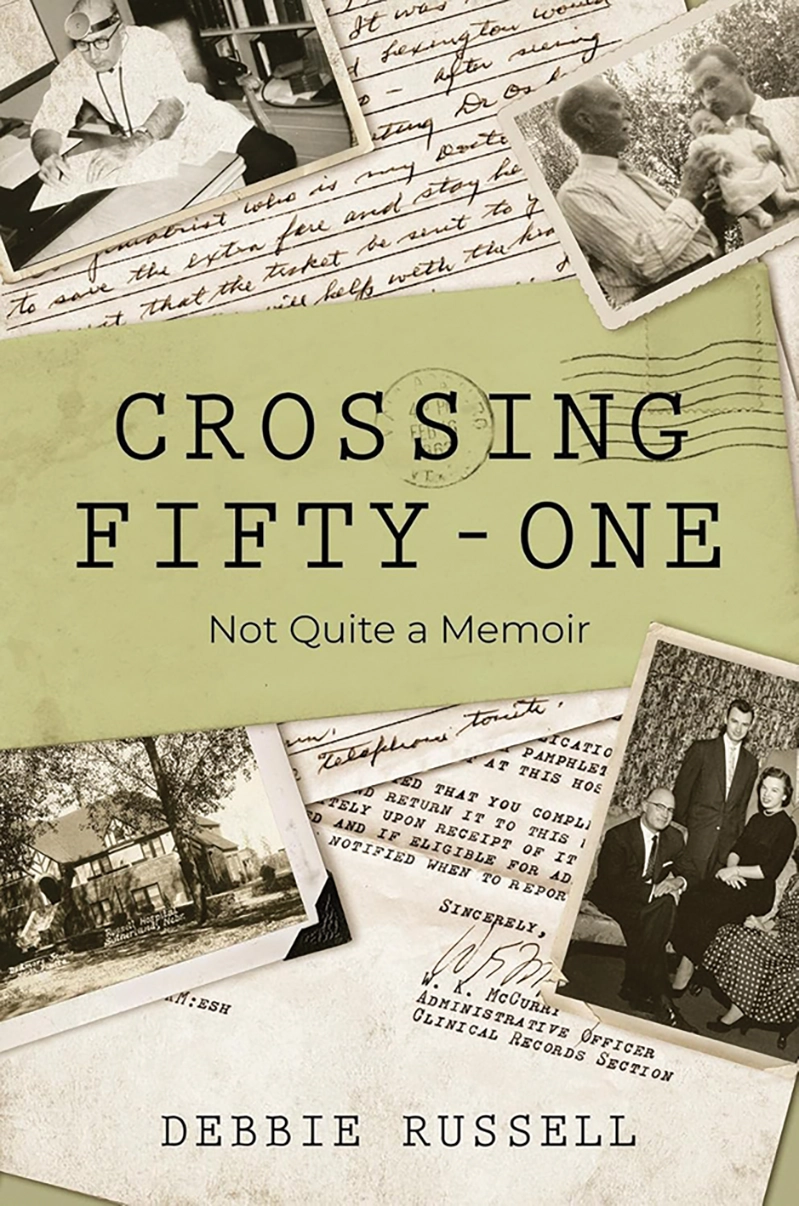From Law To Literary Success
Debbie Russell discusses her journey from law to writing, uncovering family secrets, environmental restoration, and creating relatable personal stories in her award-winning memoir, while inspiring readers with her resilience and introspection.
Debbie Russell, the acclaimed author of “Crossing Fifty-One: Not Quite a Memoir”, has masterfully crafted a compelling narrative that weaves together three generations of family history, personal transformation, and the delicate threads of human resilience. Her remarkable journey from a distinguished legal career to becoming an award-winning author showcases her exceptional storytelling prowess and deep understanding of human nature.
The former Assistant County Attorney’s debut book has garnered significant acclaim since its release in June 2023, touching readers’ hearts with its honest exploration of family secrets, addiction, and the courage to embrace change. Russell’s legal background, spanning twenty-five years in Minneapolis, brings a unique perspective to her writing, combining meticulous research with profound emotional insight.
Her contributions to the Minneapolis Star Tribune and Elephant Journal have established her as a thoughtful voice in contemporary literature and social commentary. Russell’s ability to transform complex legal and personal experiences into accessible, engaging narratives demonstrates her exceptional talent for connecting with readers on multiple levels.
Today, we are privileged to share an intimate conversation with this remarkable author, who splits her time between writing and environmental conservation on her ten-acre property. In this exclusive interview, Russell discusses her transition from law to literature, the inspiration behind “Crossing Fifty-One”, and her passionate commitment to restoring native prairie and wetlands.
Join us as we delve into the mind of an author who proves it’s never too late to pursue one’s dreams and make a meaningful impact through the written word.
“Debbie Russell’s resilience, curiosity, and fearless reinvention illuminate every page of her work, inspiring readers to embrace transformation with courage and authenticity.”
Transition from Law to Writing: After a 25-year career as an Assistant County Attorney in Minneapolis, what motivated you to transition from law to writing, and how has your legal background influenced your storytelling?
I always loved creative writing, which (if you ask my editor) is very different from legal writing! The origins of Crossing Fifty-One are contained in a file folder of approximately eighty letters between my grandfather and other members of the family from late 1951 to early 1952. When I left my government attorney job in 2020, I knew I wanted to write a book about these letters, but deciding exactly what role they would play was a whole new challenge. My legal background helped me immensely because, along with having extensive experience in research, I happen to love it! This book combines information about the US government’s approach to addiction treatment along with my personal journey through therapy. I also utilized some of my courtroom experience for managing difficult conversations with family members and professionals.
“I always loved creative writing, which (if you ask my editor) is very different from legal writing!” – Debbie Russell
Exploring Family Legacy in ‘Crossing Fifty-One’: In your memoir, Crossing Fifty-One: Not Quite a Memoir, you delve into three generations of family secrets and midlife crises. What inspired you to explore these personal and familial themes, and what impact has this exploration had on your understanding of your family’s legacy?
In 2005, I originally thought the letters between my grandfather and the family while he was in a locked, four-month drug rehabilitation program could be a book in and of themselves. This was a story that had been a family secret for over sixty years. In 2016, when my dad was accepted into hospice, I knew time was running out to get to the bottom of this secret. Also, because of my extremely close relationship with my dad, I wanted to make sure I knew everything about him as a human being, above and beyond his role as a parent. As I did research and asked tough questions, I began to see a thread of optimism and perseverance that ran from my grandfather to me, through my dad. I now see my paternal lineage as one to be immensely proud of!
Restoring Native Prairie and Wetlands: You’ve dedicated time to restoring your property to native prairie and wetlands. How has this environmental restoration work influenced your writing and personal growth?
After leaving my full-time job as a government lawyer, I knew I wanted to spend at least some of my time improving the world around me. When I bought my ten-acre property in 2018 (which I write about in the book), so much of it was mowed grass. I was horrified by that and took immediate steps to change that environment to one that was more supportive of wildlife, particularly pollinators. Climate change is something that I’ve worried about for years, and doing my small part to improve the land on which I live is very important to me. I often write about things I observe while out in nature. It’s a well-established fact that being in nature benefits physical, mental, and emotional wellness.
“Climate change is something that I’ve worried about for years, and doing my small part to improve the land is very important to me.” – Debbie Russell
Balancing Personal Narratives with Broader Themes: Your memoir addresses internal struggles of midlife and provides a blueprint for redefining oneself beyond addiction and dysfunctional family dynamics. How did you balance sharing personal narratives with conveying broader themes that resonate with a wide audience?
I love this question! As I was writing my book, I was also reading more memoirs than I ever had before. The thing with memoir is, unless the author can make their experience relatable, it quickly becomes less compelling. The exception to this rule is when the author is some sort of celebrity. There are a couple of phrases: “all pain is personal” and “the personal is universal.” For me, as a non-celebrity, the key was letting the reader all the way into my personal struggles. My brilliant editor, after going through my first draft, pointed out several places where she felt I was skimming the surface. Readers need to be a part of the story and if an author just describes events without including emotional vulnerability, readers are left thinking, “so what?” On the flip side, page after page of trauma can be a definite turn-off for many readers. In the end, I looked for parallels between my grandfather’s experience in rehab, my dad’s experience dealing with my mother, and my own experience coping with the anticipatory grief of losing my dad. Most people have dealt with one or more of those specific experiences, thus, most of the feedback I’ve gotten is that my book is “relatable.”
Advice for Aspiring Writers: As someone who made a significant career shift later in life, what advice would you offer to aspiring writers contemplating a similar transition, especially those aiming to write memoirs or personal narratives?
Just write! I firmly believe that everyone has a story to tell. The first step is just getting it out of your head and onto a page, whether it’s on the computer or longhand in a notebook. Storytelling is how we build community, and the written form can endure long after we have departed this earth!
EDITOR’S CHOICE
A beautifully written, historically rich novel that masterfully blends faith, love, and redemption against the gripping backdrop of the First Crusade.
Coming soon



